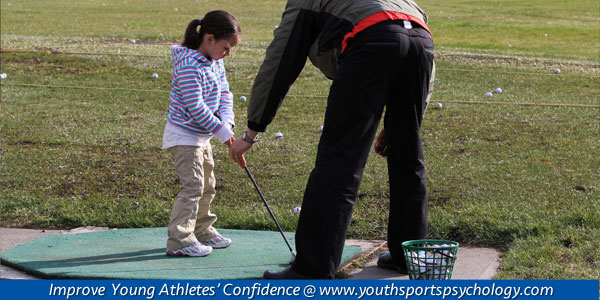
Setting Goals in Youth Sports
It’s a great idea to set goals for sports kids. Goal-setting helps improve kids’ motivation and commitment, helps them stay focused on what to accomplish, helps them assess their strengths and weaknesses, and track their performance.
But who should do it–the parent, the young athlete, or the coach? And what do you as a sports parent do if you want your child to set goals, but the coach doesn’t focus on this issue?
These are great questions that we recently discussed with Kurt Stahura, associate professor in the Department of Recreation and Sport Management at the William F. Harrah College of Hotel Administration. He has a degree in sport sociology.
Stahura says that especially for teams, the goals should be clear from the get-go. That way, parents and sports kids are less likely to get upset, angry or feel hurt.
Setting goals or guidelines for playing time is one example.
“If you have an elite travel baseball team, if the coaches say, ‘Our goal is to win, we won’t have equal playing time and we’ll have extensive travel,’ being proactive like that is better for everyone,” Stahura says.
That way, the parent won’t say later, “My child isn’t getting enough playing time,” he says. Or if parents do say this, the coach can remind them that the goals and expectations were set and communicated up front.
If your child’s coach does not set either team or individual goals, and you think it’s a great idea to set them, Stahura suggests you approach the coach in a diplomatic fashion.
Here at Kids’ Sports Psychology, we agree. Rather than telling the coach he or she is doing something wrong, you might say, “Hey, I read this e-book at Kids’ Sports Psychology about goal setting and I’d like to show it to you and see what you think.”
Parents and coaches can help kids set goals.
They need to establish:
- Long-term or dream goals,
- Intermediate,
- Short-term, and
- Immediate–or what we call process goals.
This last group helps kids stay grounded in the moment, which is critical to building confidence.
Kids need to take a multi-disciplinary approach to improving. They can set many different goals beyond improving their performance or scoring goals. Young athletes can set practice goals, mental game goals, fitness goals and nutrition goals.
Ideally, young athletes, with their parents’ support, will work with their coaches to establish their goals and objectives. It’s critical for parents, coaches and young athletes to be on the same page when it comes to goal-setting.
We always include an important warning when we talk about setting goals. Kids shouldn’t over-do it. Perfectionists will set goals and see them as a task to master. This can burn them out. Instead, they need to see goals as general guidelines that can be evaluated and changed.
Related Articles on Kids’ Mental Game:
- Setting Goals for Young Athletes
- Goals vs. Expectations for Kids
- Help Kids Focus on Goals While They’re Isolated
*Subscribe to The Sports Psychology Podcast on iTunes
*Subscribe to The Sports Psychology Podcast on Spotify
Improve Your Mental Game From Anywhere In The World

We’re certain that, as a parent, you want to help your child develop confidence and discipline in sports and life. And as a sports parent, you’d love for your children to reach their potential in sports. But encouraging your child to strive for greatness without pressuring them can be a challenge.
You can get expert mental coaching with us from anywhere. Meet with us via Zoom, Skype, FaceTime or phone call. With today’s video technology, we are able to connect with athletes and coaches all over the globe.
Call Us Today to Schedule Your Free 15-Minute Session.
Find Out How Your Athlete Can Benefit From One-on-One Mental Coaching!
